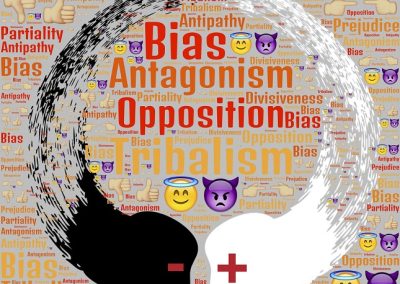There are lots of valid reasons to encourage employees to be active on social media. But clear policies and a good degree of maturity are absolutely needed.
Today brand communication is less about company contents on official channels, and more about people and their experiences, be they customers, consumers or employees. And, in the Internet age, employees have become the first brand ambassadors, changing and enhancing the corporate storytelling with the contents they choose to generate.
Several surveys happened to quantify the positive impact of staff’s social dynamism, for instance highlighting that user engagement can grow up to 5 times when a company content is shared by an employee, that 44% of LinkedIN users are more likely to apply for a job when posted by an acquaintance, that employee influencer programs can improve annual sales up to 26% [here an infographic with some recent research].
If many organisations push for employees to promote the brand and its contents on social media (in some cases they offer incentives), there are some side effects to be considered and possibly prevented.
About when and how social media are to be used, just to mention a first case. Encouraging people to speak out means approving that social media are used in business hours, and accessed from company PCs or smarphones. Without coming to the secretary of a medical clinic who was fired for the exaggerated and unjustified Facebook use, you will need to tolerate a certain degree of access with private purposes, and decide additional cybersecurity measures.
Supervising what employees publish (or don’t publish) is another great concern. From the company perspective, monitoring employees’ social accounts is important to ensure confidential information is not leaked out, and adverse or contradictory contents are not published. But how far is this control acceptable, and which tools are admissible?
Walmart employees called for unions intervention when a collegue was fired after posting confidential contents on Reddit: this was not about the decision, which was acknowledged as legitimate, but about the fear the company was spying on their social-media activity, since the posting was anonymous.
In Italy, some legal sentences confirmed social media are not exempt from calumny crimes, so an employee publishing offensive or abusive contents can be subject to sanctions or assignment termination. And there is no excuse if he or she was stressed, or intended those contents as a mere personal outburst (Corte di Cassazione, sentence nr. 10280/2018).
The definition of a clear and shared social media policy is as urgent as ever, both to ward off potentially dangerous situations and ignite the positive employee advocacy fly-wheel. Beyond established rules, it’s people maturity to play a role here – deciding what to post and when to refrain, which words and images to choose, it’s a matter of sensibility and wisdom.




